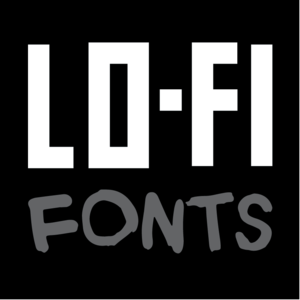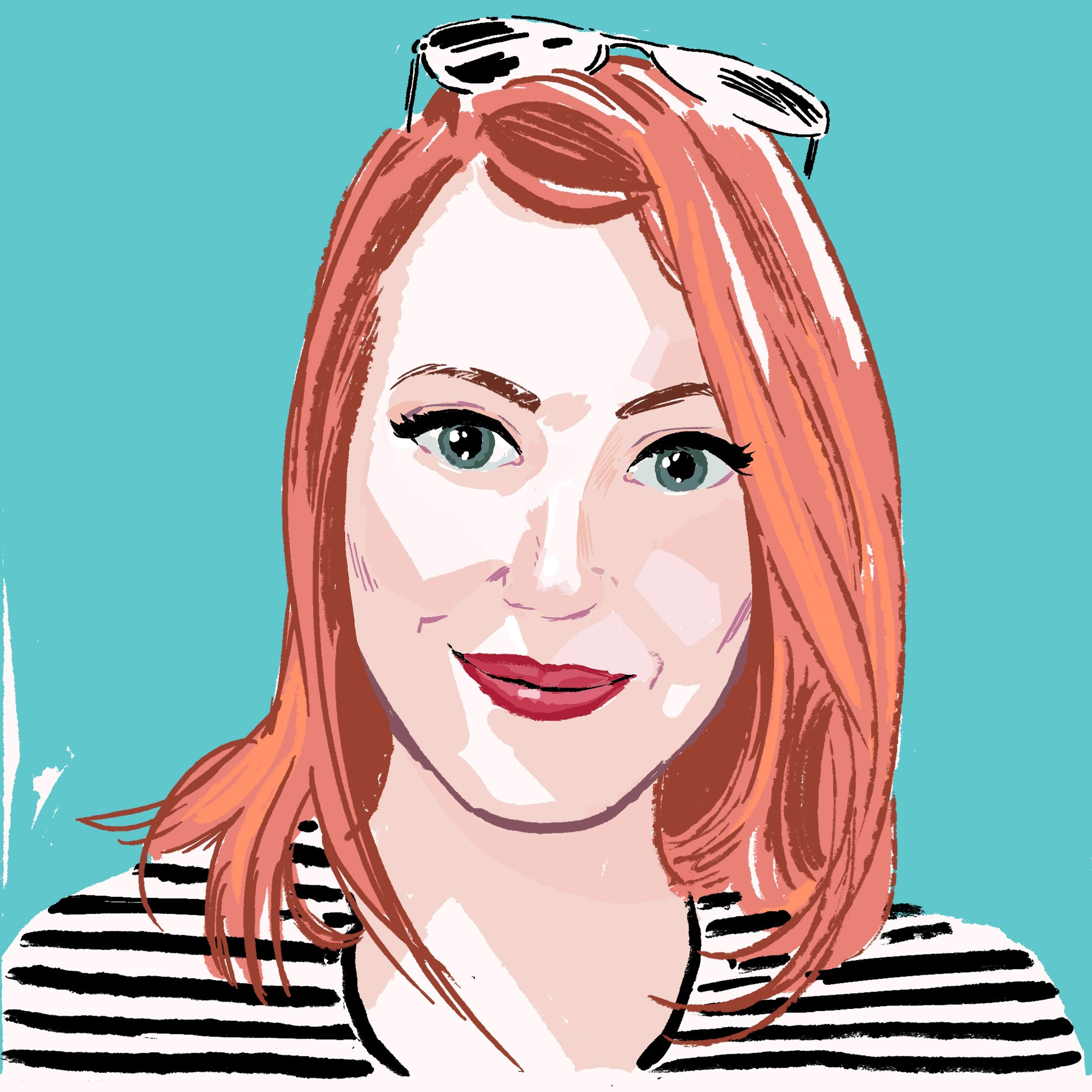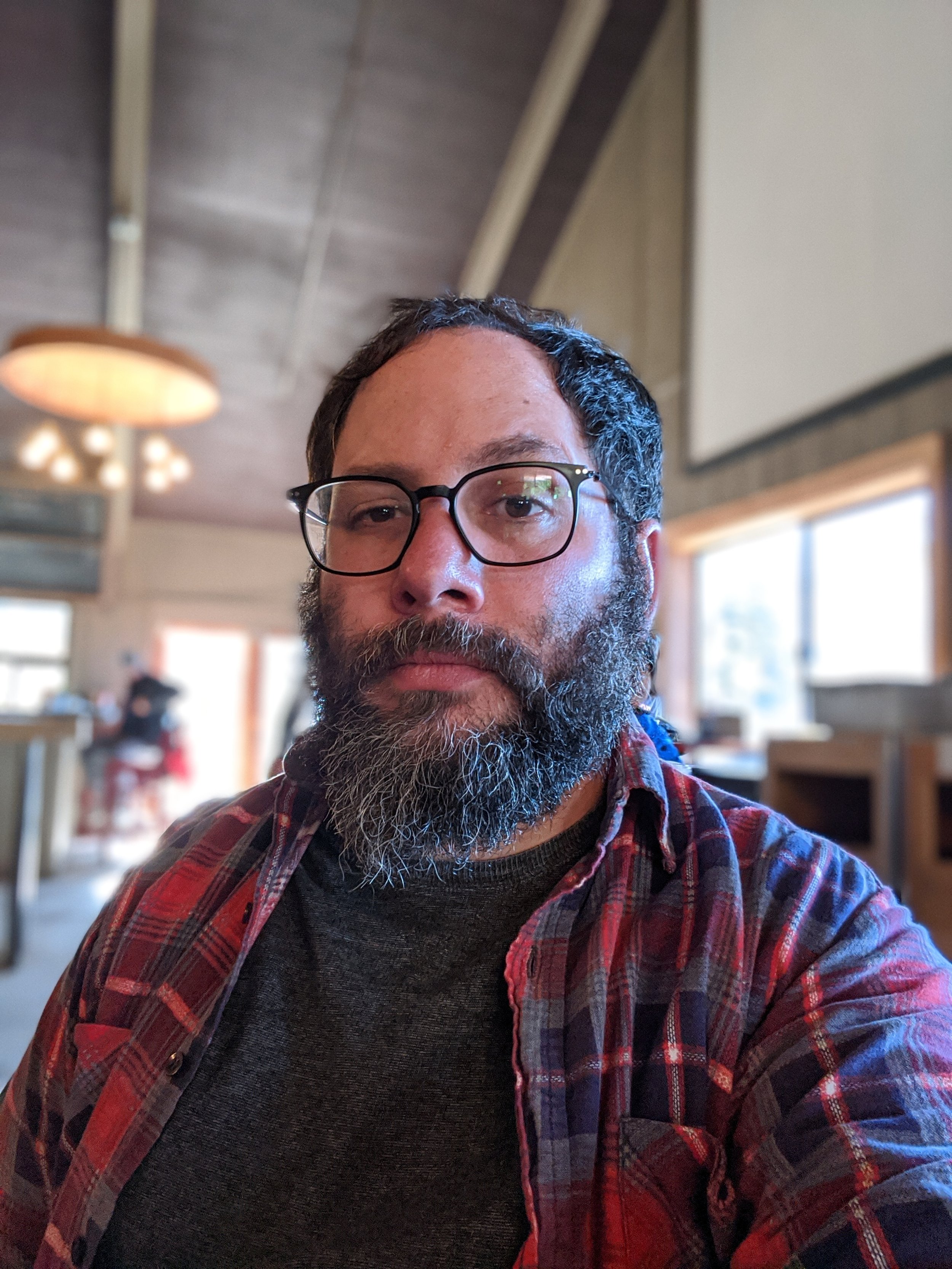Heather Antos is a Senior Editor at IDW where she's editing all things Star Trek, creator of #SignalBoostSunday. She’s previously edited works for Image, Valiant, Marvel, Star Wars, Disney, and a bunch of creator-owned stuff, too and if that wasn’t cool enough, she is also a writer and artist.
Heather, can you take us back in time to when you first fell in love with comics and how that led to making it into a career.
I mean, I’m not quite sure if I can pinpoint “the” moment it happened. As my mom would say “she’s always drawn comics before she read them.” Creating and telling stories has always been part of my every being my entire life and illustrating my own stories and creating my own characters are some of my earliest memories.
In college I took an American Literature course where we had a segment on comics and graphic novels. It was then that I was introduced to SANDMAN and I was immediately in love with the possibilities of the medium. Not having grown up with a local comic shop, I didn’t read many comics outside of the weekly newspaper comics strips or various web comics. It was roughly around the same time that the Marvel films were really starting to take off and DC was about to launch the New 52 – a perfect recipe to get this future comics editor hooked on comics.
I always laugh at this, but I really like to credit the 2011 GREEN LANTERN film for truly motivating my passion for comics. Like most of us, I am a big Ryan Reynolds fan and was excited to see him take on hopefully a good (ha!) superhero role. I researched the stories the film was to be based on and devoured them. I became hooked on Geoff Johns’ run on GL from then on. And you can bet your butt that from the very first scene in the theaters I was “that” comic fan complaining about how “incorrect” everything about the movie was.
It wasn’t too long after that that I began looking into creating my own comics and self-publishing them. Coming from a background of film and theatre production, I really enjoyed the Behind-the-scenes work of building stories and producing. So naturally, the role of the comics editor (combined with my love of writing and drawing) felt like a perfect fit.
You’ve worked for a number of publishers, how has that affected your editing process over the years, and do you feel any of the publishers contributed to the development of your skills?
I’m extremely grateful for every project, creator, and publisher I’ve been lucky enough to collaborate with. As much as I never want to experience the grind of the Big Two™ ever again, I am extremely appreciative of getting to start my professional career working at one of the biggest (if not THE biggest) comics publishers. I learned so much about the importance of concise, clear communication, organization, boundaries, and most importantly…treating your team with respect. I learned a LOT of what NOT to do – and what kind of collaborator I never want to be. It’s easy to get lost in the daily grind of making comics, and it’d be SO easy to just phone it in and not care – we’ve all seen it – but as a book’s editor, you’re the captain on the field with the rest of the team. You can’t phone it in – you’re team leader. The job is to elevate and look out for everyone else you’re working with – and getting to make pretty cool stories while doing it!
At the end of the day, it’s important to evaluate what worked, what didn’t, and what we can do to be better on the next project – no matter the publisher you’re working for.
The grind is real and burns out so many talented folks. How have you dealt with it, and do you see a way of making comics that can avoid it? Or do commercial artists just need that overwhelming sense of pressure to create for publication?
I am HARDLY the best person to go to for advice on this, ha! I DEFINITELY take on way more work than I should…but I guess that comes with the territory of a creative. We’re passionate about what we do—and we LOVE doing it. It’s so hard to say no! Coupled with very unforgiving deadlines and rates at times, it’s more than enough to make anyone look at what we do and go “But why, though?”
Ultimately, though, as cliché as it is, it’s all about working smart AND working hard (but not harder than you have to!!!). It’s important early on to figure out what systems work best for you, when you work best, and with whom you work best. At the end of the day, even though, yes, making comics for a living is pretty cool and fun, we still need to treat it like a job. It’s what is hopefully paying the bills, after all.
For me, personally, time away from the desk is just as important as time spent at the desk and time management is key. Being aware of exactly how long on average it takes you to complete various tasks will help you better forecast your workloads, and in doing so will also help you figure out accurate rates.
But what I think is most important in terms of avoiding burnout? Being able to say “no” and setting firm boundaries. If you completed work for a client weeks ago and it was approved only for them to come back later and ask for revisions…you have every right to say “Sorry, I can’t.” Or “Sure, I’d be happy to, but my corrections fee is XYZ.” We’re trained to be “grateful” for any and every opportunity we get in this industry, and many bad clients will try to make us feel bad for advocating for ourselves. There’s nothing wrong with asking to be paid for additional services. Nor is there anything wrong with saying “Hey, I’d absolutely LOVE to work with you on this project, but my schedule simply doesn’t have room for another gig this month. I’d love to see if there’s anything available later we could collaborate on?” As an editor, any time a creator is honest with me about what they can take on (even if it means a “not right now”) tells me they are someone I WANT to work with down the line because they can communicate their needs.
How do you evaluate a project? What sort of metrics are you looking at/considering when coming up with the road map for a book or team’s betterment? And if a book is an immediate sales success, does it change your process?
I love this question in that I’m not sure I have a good answer for it, ha! There are some editorial practices that I’ve seen that have more cut and dry “this is what works, point plank period” – and there is nothing wrong with that – but for myself, I generally try to treat every project, every creator, as individuals. I see it as my to facilitate an environment where every creator can do their best work within the given parameters of a project. That means being able to shift and be as flexible as need be.
For instance, if I want to work with X creator, but I know that X creator is AWFUL at email and does much better with phone calls and texts…great! That’s how we’ll do the majority of our communication. Or if creator J reaaaaaaally wants to work on say Star Trek or Star Wars but I know they are not the strongest at likenesses, then why set them up to fail? Let’s find a project that’s focused on non-tv/movie appearing characters so they can excel! Or maybe I’ve been asked to come up with a 100-pg issue last minute that needs to be solicited in 2 days, and goes to print in 2 months – better think quick, who do I know who is fast, reliable, and can NAIL it? Or in that case, how MANY people do I know who can?
Immediate sales successes are nice, but 9 times out of 10 decisions about whether or not the particular book changes course are not up to the editor of that individual project.
Star Wars or Star Trek?
Yes.
I knew that wasn’t going to work with you! Anyways, for those that don’t know, you and I work together on a super-rad book called Slumber at Image comics (if you haven’t read it, what are you waiting for?!), how different is it working on a major licensed comic like Star Wars or Star Trek compared to a creator-owned book like Slumber?
There’s a saying all editors at Marvel know from Executive Editor Tom Brevoort: “No editor can make a bad story good, they can only make it better. All editors can make a good story worse.”
No pressure, right?
Because he’s not wrong. Especially when it comes to editors in charge of managing the IP for major properties and franchises. These editors are the Keeper of the Keys to some of the biggest storylines and characters that modern media has ever known, with some of the fiercest and most passionate fans out there. How’s the saying go? “With great power…” Well, you get it.
The main difference between editing for a major publisher versus a creator owned project is who it is that holds these keys, this ultimate power of final creative say when story disagreements happen. And they do happen.
One of an editor’s many responsibilities is being the first reader to any comic. They are the first set of fresh eyes to point out plot holes, continuity mistakes, etc. They are there to question the creators’ motives — the first person to ask why these characters are behaving in such a way, in such a scene. The first person to question and correct if things just don’t make sense.
Will every creator always agree with the notes and questions their editor is making and asking?
Of course not.
That’s when the rule of “Keeper of the keys” comes into play. For a publishing house like Marvel, ultimately the editors in the Spider-Man office get final say on whether or not Peter Parker decides to go on a murderous rampage. And no matter how much the writer may think it’s the best idea that will ever hit comics, it doesn’t matter. Marvel holds the keys.
On the flipside, I may have a note or suggestion on a script for SLUMBER, TIME BEFORE TIME, BLOOD STAINED TEETH, or ROGUES’ GALLERY, but if Tyler, Declan, Christian, or Hannah disagree, no matter how much I backup my claim, stamp my feet, or hold up a boombox above my head outside their bedroom window, they hold the keys. It’s their kingdom. I’m just an advisor.
Will an editor always make the best suggestion in their notes? Nope. Will they sometimes mislead a creative team? Sure. Editors, shockingly, are human and, just like creators, can have ideas that aren’t always the best, even with the best of intentions. It all goes back to that alchemy — sometimes the ingredients don’t always result in the way you want them to.
Circling back around to 2011’s Green Lantern film and of you being “that” comic fan complaining about how correct the film was when compared to the comics, do you find yourself in situations as an editor where fans complain to you about the direction of a given series?
I suppose it depends on how you qualify the word “fan”, doesn’t it? I have a personal philosophy that social media and the internet has changed how we consume pop culture – that very few people now watch with curious open minds and instead “hate-watch/read” for their hot take and “clicks”. It’s sad, really. We no longer consume to experience and enjoy; we consume to have an opinion. Is that what being a fan of something has turned into? I don’t know.
I ask everyone I interview…If you could only give one piece of advice, be it for editing or life, what would it be?
“Don’t be a dick and do the thing.” Is my general go-to that applies to most generally any situation one encounters in life.
Twitter/Insta: @HeatherAntos
Other Insta: @HeatherARTos






